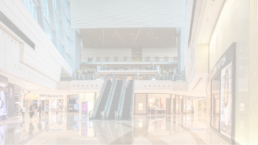Shopfitting Darwin: What a Shop Fit Out Includes & What to Expect
Shopfitting Darwin is an essential aspect of creating a successful retail space. The city of Darwin, located in the Northern Territory of Australia, is known for its vibrant retail scene. With a population that continues to grow, the demand for well-designed and functional shop fit outs has increased significantly. In this article, we will explore the importance of a well-designed shop fit out, what is included in a shop fit out, the shopfitting process, benefits of hiring a professional shopfitter, factors to consider when choosing a shopfitting company in Darwin, shopfitting trends in Darwin, costs and budgeting for a shop fit out, and common challenges in shopfitting projects.

Importance of a Well-Designed Shop Fit Out
A well-designed shop fit out is crucial for the success of any retail business in Darwin. It goes beyond simply arranging shelves and displays; it involves creating a space that is aesthetically pleasing, functional, and conducive to sales. A well-designed shop fit out can enhance the customer experience, attract more foot traffic, and ultimately increase sales. Customers are more likely to spend time and money in a store that is visually appealing and easy to navigate. Additionally, a well-designed shop fit out can also reflect the brand identity and create a memorable impression on customers.
What is Included in a Shop Fit Out?
A shop fit out typically includes a range of components that are tailored to the specific needs of the business. These components may include:
- Layout and design: This involves planning the layout of the store to optimize the use of space and create a seamless flow for customers. The design aspect includes choosing the right colors, materials, and finishes that align with the brand image and appeal to the target market.
- Fixtures and fittings: This includes the installation of shelving, display units, counters, and other fixtures that are necessary for showcasing products and providing a convenient shopping experience.
- Lighting: Lighting plays a crucial role in setting the mood of a store and highlighting products. A well-designed shop fit out will incorporate both natural and artificial lighting to create an inviting and visually appealing environment.
- Flooring: The choice of flooring can significantly impact the overall look and feel of a store. It should be durable, easy to maintain, and complement the design aesthetic of the space.
- Signage and branding: Signage is an essential element of any shop fit out. It helps customers navigate the store, promotes special offers, and reinforces brand identity. Well-designed signage can also create a strong first impression and attract potential customers.
- Technology integration: In today's digital age, technology plays a crucial role in retail. A shop fit out may include the integration of point-of-sale systems, interactive displays, and other technologies to enhance the customer experience and streamline operations.
The Shopfitting Process
The shopfitting process typically involves several stages, starting from the initial planning and design phase to the final installation and handover. Here is a breakdown of the typical shopfitting process:
- Consultation and briefing: The shopfitting company will meet with the business owner to understand their requirements, budget, and timeline. This is an opportunity for both parties to discuss ideas and expectations.
- Design and concept development: Based on the consultation, the shopfitting company will create design concepts and layouts that align with the business owner's vision. This phase may involve 3D renderings or mock-ups to help visualize the final result.
- Approval and documentation: Once the design is finalized, the shopfitting company will prepare detailed documentation, including plans, specifications, and cost estimates. The business owner will review and approve these documents before the project moves forward.
- Manufacturing and procurement: The shopfitting company will source materials, fixtures, and fittings required for the shop fit out. Custom-made items will be manufactured according to the approved design.
- Installation and construction: The actual installation and construction phase begins, where the shopfitting company will coordinate tradespeople, manage the project timeline, and ensure that all elements are installed correctly.
- Quality control and handover: Before handing over the completed shop fit out, the shopfitting company will conduct a thorough quality control check to ensure everything meets the agreed-upon standards. The business owner will review the final result and provide feedback if necessary.
- Post-installation support: A reputable shopfitting company will provide ongoing support and maintenance services to address any issues that may arise after the shop fit out is completed.
Benefits of Hiring a Professional Shopfitter
Hiring a professional shopfitter in Darwin has numerous benefits. Here are some key advantages:
- Expertise and experience: Professional shopfitters have extensive knowledge and experience in creating functional and visually appealing retail spaces. They understand the latest design trends, building regulations, and best practices in shopfitting.
- Time and cost savings: By hiring a professional shopfitter, business owners can save valuable time and money. Shopfitters have established relationships with suppliers, allowing them to source materials at competitive prices. They also have the expertise to efficiently manage the entire shopfitting process, ensuring that projects are completed on time and within budget.
- Customization and personalization: Professional shopfitters can tailor the shop fit out to meet the specific needs and preferences of the business owner. They can provide expert advice on layout, design, and materials, helping to create a unique and memorable retail space.
- Quality craftsmanship: Professional shopfitters are skilled in their craft and have access to the necessary tools and equipment to deliver high-quality workmanship. They will ensure that all fixtures, fittings, and installations are done to the highest standard, resulting in a durable and functional shop fit out.
- Compliance with regulations: Shopfitting projects are subject to various regulations, including building codes, safety standards, and accessibility requirements. Professional shopfitters are well-versed in these regulations and will ensure that the shop fit out complies with all necessary guidelines.

Factors to Consider When Choosing a Shopfitting Company in Darwin
When choosing a shopfitting company in Darwin, there are several factors to consider:
- Reputation and experience: Look for a shopfitting company with a proven track record and extensive experience in the industry. Check their portfolio of past projects and read reviews or testimonials from previous clients.
- Expertise and capabilities: Ensure that the shopfitting company has the necessary expertise and capabilities to handle your specific project requirements. This may include experience in specific industries or knowledge of specialized materials and technologies.
- Communication and collaboration: Effective communication and collaboration are crucial for a successful shopfitting project. Choose a shopfitting company that is responsive, attentive to your needs, and willing to work closely with you throughout the entire process.
- Budget and pricing: Discuss your budget with the shopfitting company upfront and ensure that they can deliver a shop fit out that aligns with your financial constraints. Beware of companies that offer significantly lower prices, as this may indicate a compromise in quality.
- Licensing and insurance: Verify that the shopfitting company holds the necessary licenses and insurance coverage to protect both parties during the project. This includes liability insurance and workers' compensation insurance.
- References and recommendations: Request references from the shopfitting company and reach out to their previous clients for feedback. This will give you a better understanding of their reputation and the quality of their work.
Shopfitting Trends in Darwin
Shopfitting trends in Darwin are constantly evolving to meet the changing needs and preferences of consumers. Here are some current trends to consider when planning your shop fit out:
- Sustainable materials: Consumers are becoming increasingly conscious of their environmental impact. Incorporating sustainable materials, such as reclaimed wood or recycled materials, can enhance the eco-friendly image of your store.
- Open and flexible spaces: Open floor plans and flexible spaces are gaining popularity in shopfitting. This allows for easy rearrangement of displays and fixtures to accommodate changing seasons or product lines.
- Technology integration: Technology is playing a more prominent role in retail. Consider integrating interactive displays, digital signage, or self-checkout systems to enhance the customer experience and streamline operations.
- Biophilic design: Biophilic design incorporates natural elements, such as plants and natural lighting, into the retail space. This creates a calming and inviting atmosphere, which can positively impact customer experience and well-being.
- Minimalistic aesthetics: Minimalism continues to be a popular design trend. Clean lines, neutral colors, and clutter-free spaces create a modern and sophisticated look that appeals to many consumers.
Costs and Budgeting for a Shop Fit Out in Darwin
The cost of a shop fit out in Darwin can vary depending on various factors, including the size of the space, the complexity of the design, and the materials used. It is essential to establish a realistic budget and consider the following cost components:
- Design and planning: This includes the fees charged by the shopfitting company for the initial design and planning phase.
- Materials and fixtures: The cost of materials and fixtures will depend on the quality, brand, and quantity required for the shop fit out. It is crucial to strike a balance between quality and affordability.
- Labor and installation: Labor costs will vary based on the complexity of the installation and the number of tradespeople required. It is advisable to obtain detailed quotes from multiple shopfitting companies to compare prices.
- Technology and equipment: If you plan to incorporate technology or specialized equipment into your shop fit out, factor in the cost of purchasing or leasing these items.
- Contingency: It is wise to allocate a contingency budget to account for any unexpected expenses or changes that may arise during the shopfitting process.
Remember that investing in a well-designed shop fit out is an investment in the success of your retail business. It is essential to consider the long-term benefits and return on investment when determining your budget.
Common Challenges in Shopfitting Projects
Shopfitting projects can present various challenges that need to be addressed to achieve a successful outcome. Some common challenges include:
- Time constraints: Shopfitting projects often have tight deadlines, especially for businesses that need to open on a specific date. It is crucial to work with a shopfitting company that can effectively manage the project timeline and ensure timely completion.
- Coordination of tradespeople: Shopfitting involves the coordination of various tradespeople, such as electricians, plumbers, and carpenters. Effective communication and coordination are essential to ensure that all elements come together seamlessly.
- Budget management: Sticking to a budget can be challenging, especially when unexpected expenses arise or changes are requested during the project. Clear communication with the shopfitting company and regular monitoring of expenses can help manage the budget effectively.
- Adherence to regulations: Shopfitting projects must comply with various regulations, including building codes, safety standards, and accessibility requirements. Failure to comply can result in delays or non-compliance penalties. Hiring a professional shopfitter who is familiar with these regulations is crucial.
- Quality control: Ensuring that all elements of the shop fit out meet the desired quality standards can be challenging. Regular inspections and open communication with the shopfitting company can help address any quality issues promptly.
By being aware of these common challenges and working closely with a professional shopfitter, you can overcome them and achieve a successful shop fit out.

Creating the Perfect Shop Fit Out in Darwin
Shopfitting Darwin is an important consideration for any retail business looking to succeed in the vibrant market. A well-designed shop fit out can enhance the customer experience, attract more foot traffic, and ultimately increase sales. By understanding the components of a shop fit out, the shopfitting process, the benefits of hiring a professional shopfitter, factors to consider when choosing a shopfitting company in Darwin, shopfitting trends, costs and budgeting, and common challenges, business owners can make informed decisions and create the perfect shop fit out for their retail space. Remember, investing in a well-designed shop fit out is an investment in the success and growth of your business in Darwin.

